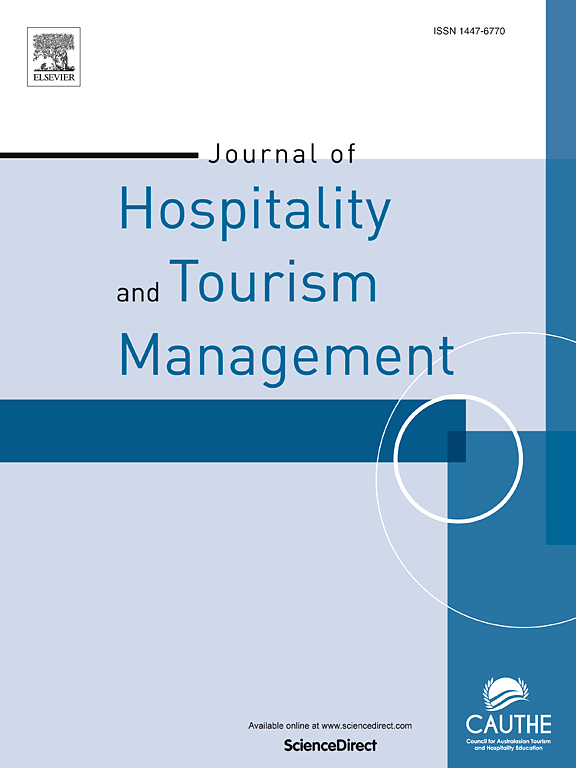提升绿色广告:基于行为类型的情感诉求与理性诉求对游客亲环境意愿的影响
IF 7.8
1区 管理学
Q1 HOSPITALITY, LEISURE, SPORT & TOURISM
引用次数: 0
摘要
绿色广告是通过鼓励游客参与环保活动来促进可持续旅游的有效方法。然而,现有的研究表明,不同信息诉求的有效性存在一定程度的争议。本研究运用精细似然模型,通过四个实验,探讨了亲环境行为类型与信息诉求的一致性与亲环境行为意向变化之间的因果关系和潜在机制。研究结果表明,在绿色广告中,信息诉求的有效性取决于亲环境行为的类型。具体而言,当低努力行为与情感诉求相匹配,高努力行为与理性诉求相匹配时,游客表现出更强的亲环境意愿。此外,信息诉求和行为类型对游客亲环境意愿的影响存在道德提升的中介作用。此外,调节效应分析表明,这种匹配效应在绿色涉入低的个体中显著增强。本研究将亲环境行为类型整合到绿色广告中,为情感诉求与理性诉求的争论提供了新的视角,并为优化目的地管理策略提供了可操作的见解。本文章由计算机程序翻译,如有差异,请以英文原文为准。
Enhancing green advertising: How emotional and rational appeals influence tourists’ pro-environmental intentions based on behavior types
Green advertising is an effective method for promoting sustainable tourism by encouraging tourists to engage in environmentally friendly activities. However, existing research shows a certain degree of controversy regarding the effectiveness of different message appeals. Drawing on the elaboration likelihood model, this research examines the causal relationship and underlying mechanisms between the alignment of pro-environmental behavior types with message appeals and changes in pro-environmental behavior intentions through four experiments. Findings show that in green advertising, the effectiveness of message appeals depends on the types of pro-environmental behavior. Specifically, tourists exhibit stronger pro-environmental intentions when low-effort behaviors are matched with emotional appeals and high-effort behaviors with rational appeals. In addition, the influence of message appeals and behavior types on tourists’ pro-environmental intentions is mediated by moral elevation. Furthermore, the moderating effect analysis reveals that this matching effect is significantly stronger among individuals with low green involvement. This research integrates pro-environmental behavior types into green advertising, offering a novel perspective on the debate on emotional versus rational appeals and providing actionable insights for optimizing destination management strategies.
求助全文
通过发布文献求助,成功后即可免费获取论文全文。
去求助
来源期刊
CiteScore
13.30
自引率
8.40%
发文量
177
审稿时长
45 days
期刊介绍:
Journal Name: Journal of Hospitality and Tourism Management
Affiliation: Official journal of CAUTHE (Council for Australasian Tourism and Hospitality Education Inc.)
Scope:
Broad range of topics including:
Tourism and travel management
Leisure and recreation studies
Emerging field of event management
Content:
Contains both theoretical and applied research papers
Encourages submission of results of collaborative research between academia and industry.

 求助内容:
求助内容: 应助结果提醒方式:
应助结果提醒方式:


